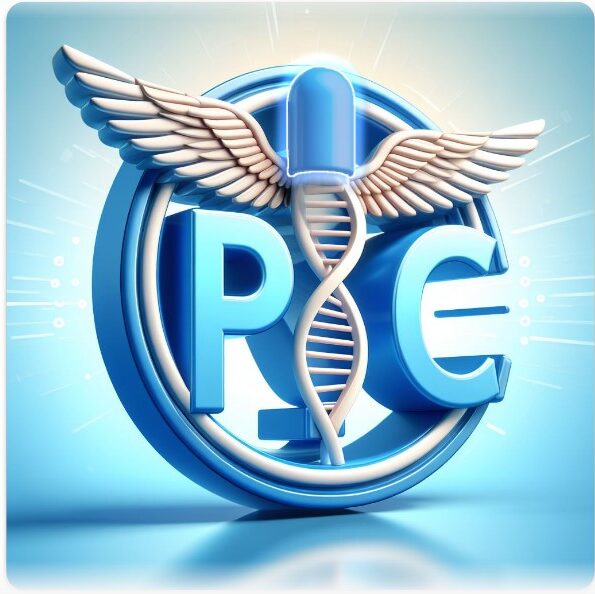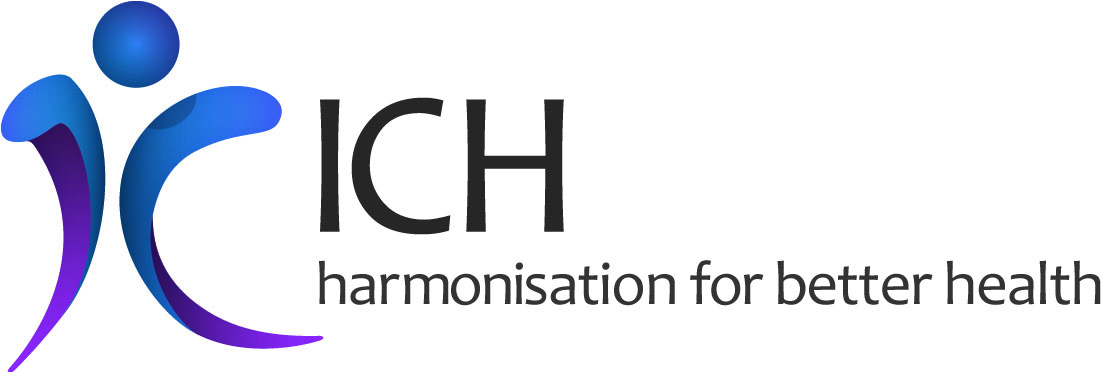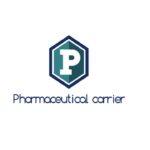ICH Q7 Guidelines
Ich Q7 Guidelines are a set of regulations put forth by the International Council for Harmonisation of Technical Requirements for Pharmaceuticals for Human Use (ICH) for the Good Manufacturing Practices (GMP) of active pharmaceutical ingredients (API). These guidelines provide a framework for ensuring that API manufacturing processes are of high quality and consistent, with the goal of protecting public health.
The guidelines cover a wide range of topics related to API manufacturing, including management responsibilities, facility design and construction, equipment, production processes, and laboratory controls. They also include requirements for documentation, record-keeping, and batch release, as well as guidelines for quality management systems, self-inspection, and auditing.
One key aspect of the Ich Q7 Guidelines is the emphasis on risk management. The guidelines encourage manufacturers to identify and assess potential risks to product quality, and to implement controls to minimize these risks. This includes risk assessment of raw materials, process controls, and finished product testing.
Another important aspect of the guidelines is the requirement for a comprehensive quality management system. This system should include clear roles and responsibilities for management, as well as policies and procedures for ensuring quality throughout the API manufacturing process. It should also include a system for monitoring and controlling quality, including regular self-inspections and external audits.
The Ich Q7 Guidelines also include specific requirements for facility design and construction, including requirements for cleanliness and sanitation, as well as guidelines for equipment maintenance and calibration. In addition, the guidelines provide detailed information on production processes, including requirements for process validation, process controls, and testing of intermediate and finished products.
In summary, the Ich Q7 Guidelines provide a comprehensive framework for GMP of active pharmaceutical ingredients. They emphasize risk management, quality management systems, and good manufacturing practices, with the ultimate goal of protecting public health by ensuring that API manufacturing processes are of high quality and consistency.
Importance of ICH Q7 guideline
The International Council for Harmonisation of Technical Requirements for Pharmaceuticals for Human Use (ICH) Q7 guideline provides guidelines for the manufacture of active pharmaceutical ingredients (APIs) for use in human pharmaceuticals. This guideline is important for several reasons:
-
Ensuring quality: The ICH Q7 guideline provides specific requirements for the quality, purity and identity of APIs, which helps to ensure that the final pharmaceutical product is safe and effective for patients.
-
Facilitating global trade: The ICH Q7 guideline is globally recognized and accepted, which allows for the manufacture and trade of APIs across international borders, facilitating the global pharmaceutical market.
-
Improving efficiency: The guideline is designed to align with existing national and regional regulations, reducing the need for multiple inspections and certifications, which improves efficiency and reduces costs for the industry.
-
Maintaining consistency: By providing a consistent set of guidelines for the manufacture of APIs, the ICH Q7 guideline helps to maintain consistency in the quality and purity of APIs, which contributes to the overall quality and safety of the final pharmaceutical products.
-
Compliance with regulatory requirements: The guideline is aligned with regulatory requirements of different countries, so manufacturers of APIs have to comply with the guideline to meet the regulatory requirements of the countries they are exporting to.
Correlation between ICH Q7 guideline and Good Manufacturing Practices (GMP)
The International Council for Harmonisation of Technical Requirements for Pharmaceuticals for Human Use (ICH) Q7 guideline and Good Manufacturing Practices (GMP) are both important guidelines for the pharmaceutical industry, but they serve different purposes.
ICH Q7 is a specific guideline that provides guidelines for the manufacture of active pharmaceutical ingredients (APIs) for use in human pharmaceuticals. It covers areas such as quality, purity, and identity of APIs, and is designed to align with existing national and regional regulations.
GMP, on the other hand, is a broader set of guidelines that cover all aspects of the manufacturing, processing, packaging, and storage of pharmaceutical products. It includes guidelines for facilities, equipment, personnel, and production processes, as well as for quality control and quality assurance.
While ICH Q7 is focused specifically on APIs, GMP covers all aspects of the pharmaceutical manufacturing process. Therefore, GMP is a comprehensive standard to be followed in the pharmaceutical industry that applies to all types of pharmaceutical products and APIs.
In practice, ICH Q7 and GMP often work together to ensure that the final pharmaceutical products are safe and effective for patients. Manufacturers of APIs must comply with both ICH Q7 and GMP in order to meet regulatory requirements and to ensure the quality and safety of their products. ICH Q7 provides specific guidelines for APIs, but GMP provides a broader framework to ensure that the entire manufacturing process meets high standards.
In addition to the key aspects mentioned above, the Ich Q7 Guidelines also provide guidance on documentation and record-keeping. This includes requirements for maintaining detailed records of all manufacturing processes, as well as guidelines for maintaining and archiving these records. This documentation should be easily accessible, and should be used to track and review the performance of the quality management system.
The guidelines also include specific requirements for batch release, which is the process of testing and approving a batch of API for release and distribution. This includes guidelines for testing finished products, as well as requirements for maintaining detailed records of all batch testing. The batch release process should be conducted by a qualified person, who is responsible for ensuring that the batch meets all quality requirements.
The Ich Q7 Guidelines also encourage manufacturers to establish a system for continuous improvement, in order to ensure that the quality management system is constantly being reviewed and updated. This includes regular self-inspections, as well as external audits, which are conducted by regulatory authorities or other independent organizations. The goal of these inspections and audits is to identify areas for improvement and to make necessary changes to the quality management system in order to ensure that it is always up-to-date and effective.
In conclusion, the Ich Q7 Guidelines provide a comprehensive set of regulations for the GMP of active pharmaceutical ingredients. These guidelines cover a wide range of topics, including management responsibilities, facility design and construction, equipment, production processes, laboratory controls, and documentation and record-keeping. By following these guidelines, manufacturers can ensure that their API manufacturing processes are of high quality and consistency, and that they are protected from potential risks to public health. The guidelines are constantly updated to reflect the latest industry standards and best practices, and manufacturers are encouraged to stay informed of any changes or updates.
It’s worth noting that compliance with the Ich Q7 Guidelines is not only important for regulatory compliance and protecting public health, but it can also bring a number of benefits to the manufacturers themselves. Following good manufacturing practices can lead to greater efficiency, lower costs and better quality control in the production process, which ultimately results in more consistent and higher quality products.
Furthermore, the Ich Q7 Guidelines are recognized and respected internationally, which can be a significant advantage for manufacturers who wish to export their products or do business with companies in other countries. Compliance with these guidelines can demonstrate a commitment to quality and help to build trust with customers and regulatory authorities.
Another important aspect of the Ich Q7 Guidelines is the requirement for personnel training. The guidelines state that all personnel involved in API manufacturing should be trained and qualified to perform their assigned tasks. This includes initial and ongoing training, as well as regular assessments to ensure that personnel have the necessary knowledge, skills and experience to perform their duties effectively. This is important for maintaining the quality of the API manufacturing process and ensuring that personnel are aware of their responsibilities and the importance of good manufacturing practices.
Finally, it’s worth mentioning that the Ich Q7 Guidelines applies to all forms of API manufacturing including chemical synthesis, fermentation, extraction, and purification, etc. regardless of the manufacturing process, the guidelines establish a framework for ensuring that the API is produced consistently, and is of the highest quality.
In summary, the Ich Q7 Guidelines provide a comprehensive framework for GMP of active pharmaceutical ingredients. Compliance with these guidelines can ensure that API manufacturing processes are of high quality and consistency, protect public health, and bring benefits to the manufacturers themselves. The guidelines emphasize on risk management, quality management systems, personnel training, and good manufacturing practices, with the ultimate goal of protecting public health by ensuring that API manufacturing processes are of high quality and consistency.
It’s also worth mentioning that the Ich Q7 Guidelines are not only applicable to traditional pharmaceuticals but also to biopharmaceuticals such as recombinant proteins, monoclonal antibodies, and vaccines. The guidelines provide a framework for GMP of these products, which have unique characteristics and manufacturing processes that need to be considered.
One important aspect of biopharmaceutical manufacturing is the use of biological raw materials, such as cells or microorganisms, which can introduce additional risks to the production process. The Ich Q7 Guidelines address these risks by providing guidance on the qualification and characterization of biological raw materials, as well as guidelines for controlling the production process to minimize potential risks.
Another important aspect of biopharmaceutical manufacturing is the use of complex and often large-scale manufacturing processes, such as fermentation or purification. The Ich Q7 Guidelines provide guidance on these processes, including requirements for process validation, process controls, and testing of intermediate and finished products. This ensures that the final product is of the highest quality and consistency.
Additionally, the guidelines also provide guidance on the manufacture of biosimilars. Biosimilars are similar but not identical to an already authorized biological product and have to comply with the same requirements as any other biological product. The guidelines provide guidance on the non-clinical and clinical studies required to demonstrate biosimilars’ similarity to the reference product and the requirements for post-approval changes.
In conclusion, the Ich Q7 Guidelines not only apply to traditional pharmaceuticals but also to biopharmaceuticals such as recombinant proteins, monoclonal antibodies, and vaccines. The guidelines provide a comprehensive framework for GMP of these products and ensure that they are produced consistently and of the highest quality. This includes guidance on the qualification and characterization of biological raw materials, control of production processes, process validation, and testing of intermediate and finished products. Compliance with these guidelines is crucial for protecting public health and ensuring that biopharmaceutical products are safe and effective.
Key points of the ICH Q7 Guidelines
- Provides a framework for Good Manufacturing Practices (GMP) for active pharmaceutical ingredients (API)
- Emphasizes on risk management, quality management systems, and good manufacturing practices, with the ultimate goal of protecting public health by ensuring that API manufacturing processes are of high quality and consistency.
- Covers a wide range of topics related to API manufacturing, including management responsibilities, facility design and construction, equipment, production processes, and laboratory controls.
- Includes requirements for documentation, record-keeping, and batch release, as well as guidelines for quality management systems, self-inspection, and auditing.
- Encourages manufacturers to identify and assess potential risks to product quality, and to implement controls to minimize these risks.
- Requires a comprehensive quality management system including clear roles and responsibilities for management, as well as policies and procedures for ensuring quality throughout the API manufacturing process.
- Provides specific requirements for facility design and construction, including requirements for cleanliness and sanitation, as well as guidelines for equipment maintenance and calibration.
- Includes detailed information on production processes, including requirements for process validation, process controls, and testing of intermediate and finished products.
- Compliance with the guidelines brings benefits to the manufacturers themselves, such as greater efficiency, lower costs and better quality control in the production process, which ultimately results in more consistent and higher quality products.
- Recognized and respected internationally, which can be a significant advantage for manufacturers who wish to export their products or do business with companies in other countries.
- Requires personnel training, all personnel involved in API manufacturing should be trained and qualified to perform their assigned tasks.
- Applies to all forms of API manufacturing including chemical synthesis, fermentation, extraction, and purification.
- Not only applicable to traditional pharmaceuticals but also to biopharmaceuticals such as recombinant proteins, monoclonal antibodies, and vaccines.
- Provides guidance on the qualification and characterization of biological raw materials, as well as guidelines for controlling the production process to minimize potential risks.
- Provides guidance on complex and large-scale manufacturing processes, such as fermentation or purification.
- Provides guidance on the manufacture of biosimilars and the requirements for non-clinical and clinical studies and post-approval changes.
For more articles, Kindly Click here.
For pharmaceutical jobs, follow us on LinkedIn
For Editable SOPs in word format contact us on info@pharmaceuticalcarrier.com
Pharmacareer team is a team of Experts from every department of Pharmaceutical industry having enriched experience. Experts have work experience of many multinational pharmaceutical industries worldwide.


